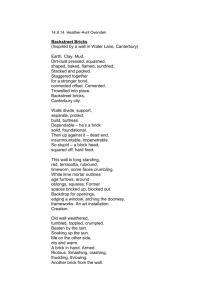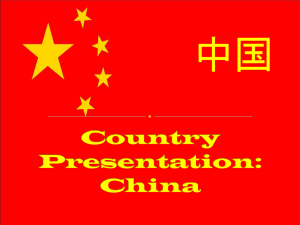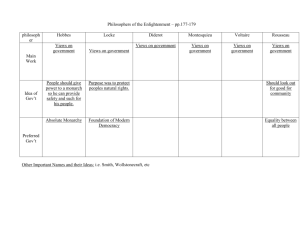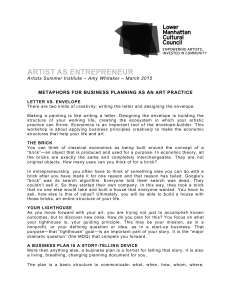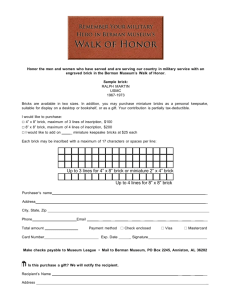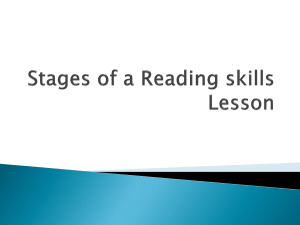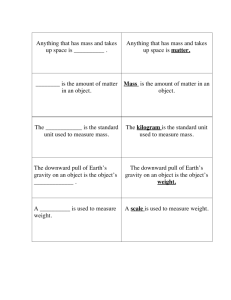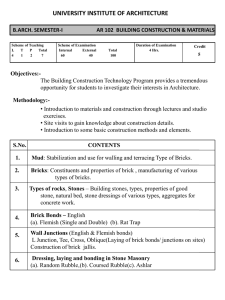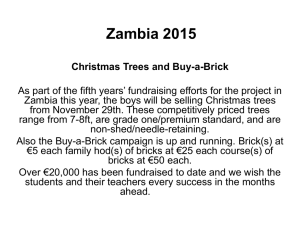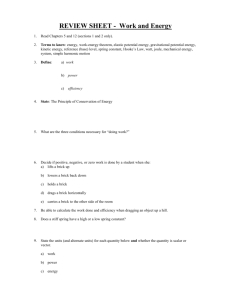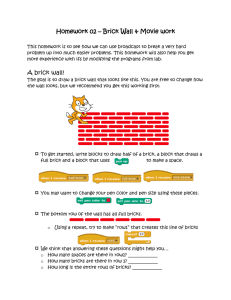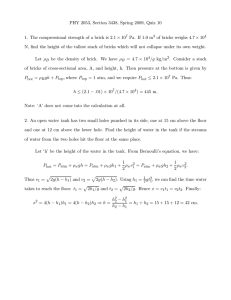Legacy Wall: AP Midterm Review by Period
advertisement
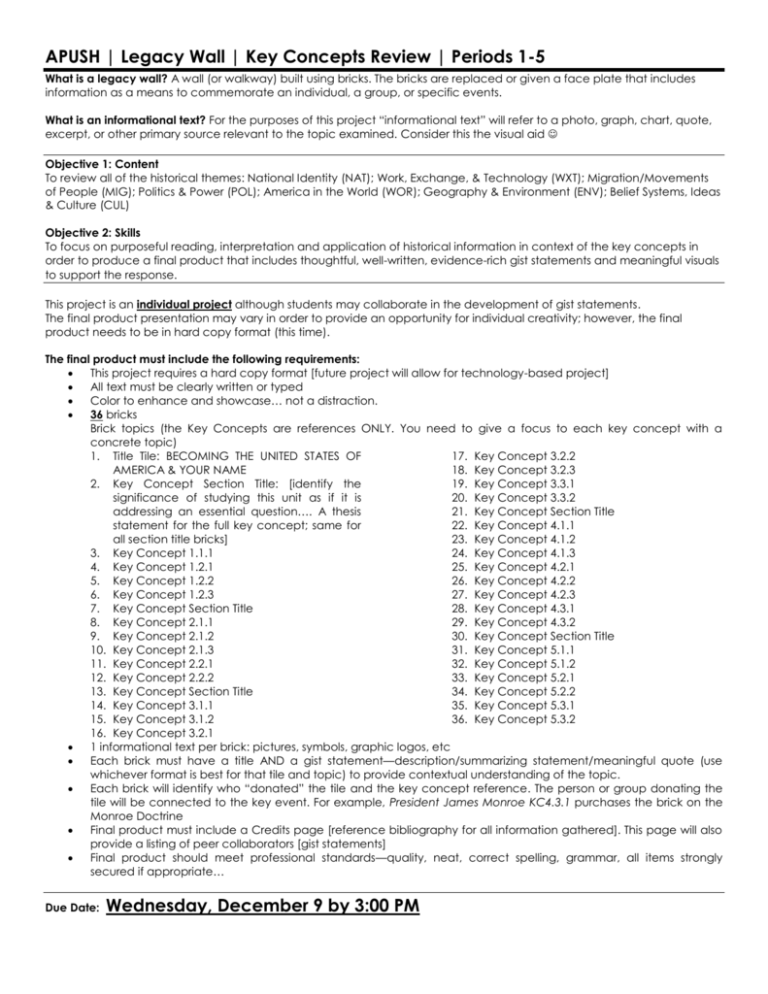
APUSH | Legacy Wall | Key Concepts Review | Periods 1-5 What is a legacy wall? A wall (or walkway) built using bricks. The bricks are replaced or given a face plate that includes information as a means to commemorate an individual, a group, or specific events. What is an informational text? For the purposes of this project “informational text” will refer to a photo, graph, chart, quote, excerpt, or other primary source relevant to the topic examined. Consider this the visual aid Objective 1: Content To review all of the historical themes: National Identity (NAT); Work, Exchange, & Technology (WXT); Migration/Movements of People (MIG); Politics & Power (POL); America in the World (WOR); Geography & Environment (ENV); Belief Systems, Ideas & Culture (CUL) Objective 2: Skills To focus on purposeful reading, interpretation and application of historical information in context of the key concepts in order to produce a final product that includes thoughtful, well-written, evidence-rich gist statements and meaningful visuals to support the response. This project is an individual project although students may collaborate in the development of gist statements. The final product presentation may vary in order to provide an opportunity for individual creativity; however, the final product needs to be in hard copy format (this time). The final product must include the following requirements: This project requires a hard copy format [future project will allow for technology-based project] All text must be clearly written or typed Color to enhance and showcase… not a distraction. 36 bricks Brick topics (the Key Concepts are references ONLY. You need to give a focus to each key concept with a concrete topic) 1. Title Tile: BECOMING THE UNITED STATES OF 17. Key Concept 3.2.2 AMERICA & YOUR NAME 18. Key Concept 3.2.3 2. Key Concept Section Title: [identify the 19. Key Concept 3.3.1 significance of studying this unit as if it is 20. Key Concept 3.3.2 addressing an essential question…. A thesis 21. Key Concept Section Title statement for the full key concept; same for 22. Key Concept 4.1.1 all section title bricks] 23. Key Concept 4.1.2 3. Key Concept 1.1.1 24. Key Concept 4.1.3 4. Key Concept 1.2.1 25. Key Concept 4.2.1 5. Key Concept 1.2.2 26. Key Concept 4.2.2 6. Key Concept 1.2.3 27. Key Concept 4.2.3 7. Key Concept Section Title 28. Key Concept 4.3.1 8. Key Concept 2.1.1 29. Key Concept 4.3.2 9. Key Concept 2.1.2 30. Key Concept Section Title 10. Key Concept 2.1.3 31. Key Concept 5.1.1 11. Key Concept 2.2.1 32. Key Concept 5.1.2 12. Key Concept 2.2.2 33. Key Concept 5.2.1 13. Key Concept Section Title 34. Key Concept 5.2.2 14. Key Concept 3.1.1 35. Key Concept 5.3.1 15. Key Concept 3.1.2 36. Key Concept 5.3.2 16. Key Concept 3.2.1 1 informational text per brick: pictures, symbols, graphic logos, etc Each brick must have a title AND a gist statement—description/summarizing statement/meaningful quote (use whichever format is best for that tile and topic) to provide contextual understanding of the topic. Each brick will identify who “donated” the tile and the key concept reference. The person or group donating the tile will be connected to the key event. For example, President James Monroe KC4.3.1 purchases the brick on the Monroe Doctrine Final product must include a Credits page [reference bibliography for all information gathered]. This page will also provide a listing of peer collaborators [gist statements] Final product should meet professional standards—quality, neat, correct spelling, grammar, all items strongly secured if appropriate… Due Date: Wednesday, December 9 by 3:00 PM
